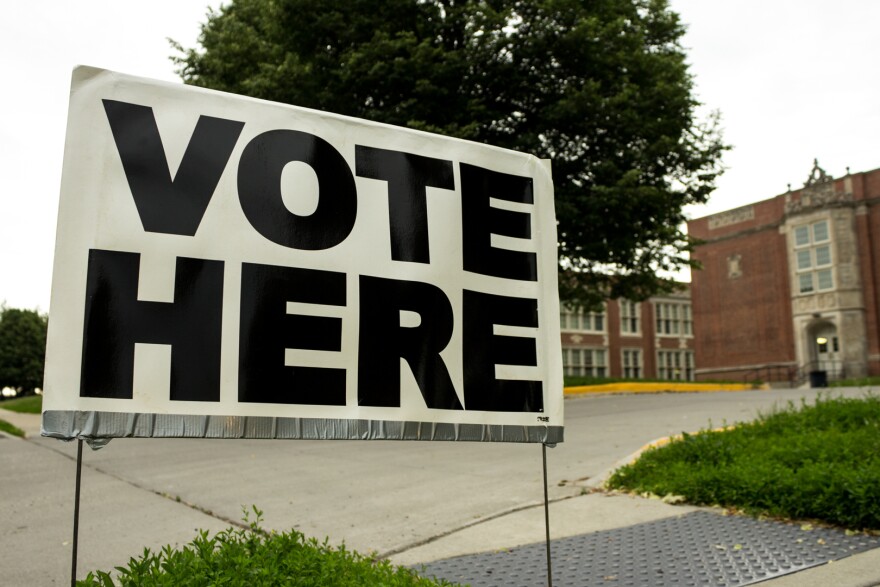This post was updated Tuesday, 10/1/19 at 4:14 p.m.
A Polk County judge has upheld a state law requiring Iowa voters to show an ID at the polls, but struck down other parts of the law as unconstitutional.
The Iowa Legislature, led by Republicans, made significant changes to state voting laws in 2017. The League of United Latin American Citizens, a Latino civil rights group, challenged the laws in court along with an Iowa State University student.
Iowa Secretary of State Paul Pate, a Republican, was named in the lawsuit.
“This ruling is a victory for election integrity,” Pate said in a statement. “My goal has always been to make it easy to vote, but hard to cheat.”
LULAC Iowa Political Director Joe Enriquez Henry said he is thankful parts of the law were rejected, but he will continue to oppose ID requirements.
“We still view those as a form of voter suppression, and we hope that the state legislature will change the law and make it the way it was before for over 40 years,” Henry said.
At a trial that started in June, attorneys for LULAC argued the provisions unconstitutionally burden Iowans’ right to vote and disproportionately affect elderly voters, poor voters, and people of color.
Lawyers for the state argued the 2017 voting law changes apply to all voters in a uniform manner and advance the state interest of maintaining election integrity.
In a ruling dated Monday, Judge Joseph Seidlin wrote the requirement for voters to show an ID at the polls does not violate the Iowa Constitution.
“The evidence presented simply did not demonstrate that the burden on young voters, old voters, female voters, minority voters, poor voters and voters who are Democrats to show an approved form of identification at the polls is appreciably greater than the rest of the population,” Seidlin wrote.
But he struck down the section that prevents the secretary of state’s office from issuing a voter ID card to people who are identified in other state databases. Seidlin said the law unconstitutionally treats people differently, and any voter who wants a voter ID card should be able to request one from the state.
Seidlin struck down the provision allowing county auditors to reject absentee ballots if they think someone other than that voter signed the enclosed paperwork.
He also upheld a requirement for absentee ballot requests to include a voter verification number. But Seidlin points out Iowa law requires county auditors to try to fill in any missing information on ballot applications. This means an absentee ballot request won’t necessarily be rejected just because a voter failed to include their voter verification number.
Seidlin’s ruling comes about a month before Election Day for local races. This is the first year that the state is enforcing the voter ID requirement.
Neither side has said if it plans to appeal the ruling.
This post was corrected to remove an earlier statement indicating that a requirement for a voter identification number on absentee ballot requests was struck down.


